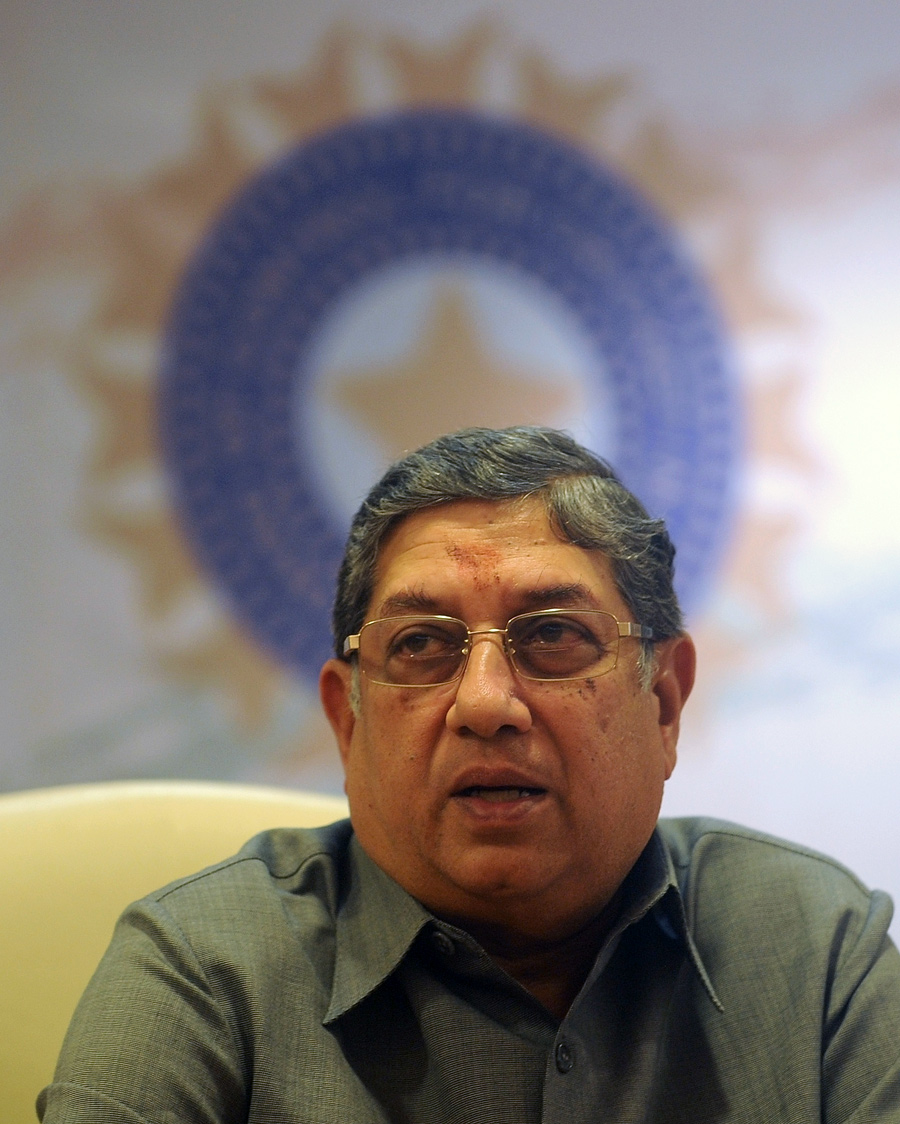Basil
Contributor
- Joined
- 6 Oct 2013
- Messages
- 4,888
- Reaction score
- 3,013
ICC revamp: 'A strong India is good for world cricket' - Srinivasan

N Srinivasan, the BCCI president, has strongly defended India's claim for a higher percentage of the ICC's global revenues and has asserted that India would have never signed the Members Participating Agreement (MPA) in its existing form. He also rejected the suggestion that the restructure plan for the ICC amounted to a takeover of the global game by its three most powerful constituents.
Speaking to ESPNcricinfo days before the ICC board reassembles in Singapore to decide on proposals which have undergone minor changes since being tabled at the ICC board meeting in Dubai on January 29, Srinivasan said the proposed restructure is aimed at providing financial stability to all cricket-playing nations and making the ICC a more inclusive organisation.
"The BCCI is quite happy to be involved with the leadership of cricket," he said. "We will embrace this ICC in the new structure, which will be good for cricket as a whole."
The BCCI will emerge the biggest beneficiary under the proposed revenue distribution plan, its earning increasing in the range between US$ 63 million and US$ 766 million. Srinivasan said that none of the other boards had objections to India taking a higher share of the revenue because there was universal recognition of India's contribution to cricket's global revenues.
"A strong India with a vibrant commercial structure is good for world cricket," he said.
When asked if the BCCI, as has been widely reported, had made the signing of the MPA conditional to the restructure, Srinivasan said the BCCI had a few genuine issues with the MPA as it stood.
"I don't know how it got signed. I would not have signed the last MPA. There are a lot of disadvantages. We had made it clear that we could not sign the MPA in the current form." When asked, more than once, to explain what the "disadvantages" were, he refused to provide further details but said the issues were "substantial".
"The other members in the committee realised that India's concerns were legitimate and therefore it led to a discussion, out of which all these proposals came".
When asked about the absence of a consultative process while drafting such wide-ranging and sweeping changes, Srinivasan said the proposal that was presented to the ICC board members had always been a draft which was put up for discussion, not for approval.
"When we met in Dubai on January 9, I made the presentation and we said this is what we are suggesting. If there are improvements or suggestions or some other model, please feel free to put them forward. Somebody has to prepare a draft for discussion. So three out of ten sat together and prepared a draft, others can go through it and suggest changes. In fact a lot of changes have already taken place. There has been lot of consultation and a lot of points have been dropped also and some changes have been made."
"There is no veto. There will be two other members at all times and anyone can become the chairman after the term of the first chairman gets over. And more importantly, this will be another committee of the ICC. It will report to the ICC board on which all the members sit. And the ICC board will be remain supreme, with the all the decision-making authority." N Srinivasan on the proposed ExCo
Would the abolition of the FTP in its current form not leave a lot of members at the mercy of the bigger boards? Srinivasan said the new system of bilateral agreements will be far stronger. "The current system is merely an indicative structure without any guarantees. It is not a legal document, it was never binding.
"The FTP bilateral agreement will be stronger. And we have already sat down during the Dubai meeting and discussed it with a number of countries, and the proposed FTP for going forward will work on the right cycle."
On the other contentious issue of the permanent membership in the proposed executive committee for India, England and Australia, Srinivasan strongly denied that it amounted the return of the veto-era, which the BCCI fought to overturn. "There is no veto," he said, "There will be two other members at all times and anyone can become the chairman after the term of the first chairman gets over.
"And more importantly, this will be another committee of the ICC. It will report to the ICC board on which all the members sit. And the ICC board will be remain supreme, with the all the decision-making authority."
Srinivasan also maintained the ICC's stance that Associate members stand to gain, financially and on the field, from the proposals. "I'll explain it to you. In the last rights cycle, a total of US$ 314 million was allocated to the Associates. But actually the Associates, in terms of money, got US$ 125 million directly from the ICC. And then the balance went by way of subscriptions collected from them, ICC administration costs, event costs, tournament costs, and costs of running some programmes - umpires' programmes or high performance programmes etc. So basically it is 125 plus cost.
"Now, in this proposal … they are likely to get 200 plus costs. The top performing Associates will get almost a 100 million, which is what was [previously] given to all of them.
"What has been their concern at all times? They say we are playing only amongst each other, we never get to play you. So there is an opportunity now, in time. You can't look at things overnight, you take a 10-year cycle, 20 years. A top Associate can become a top Test nation, that possibility is there."
